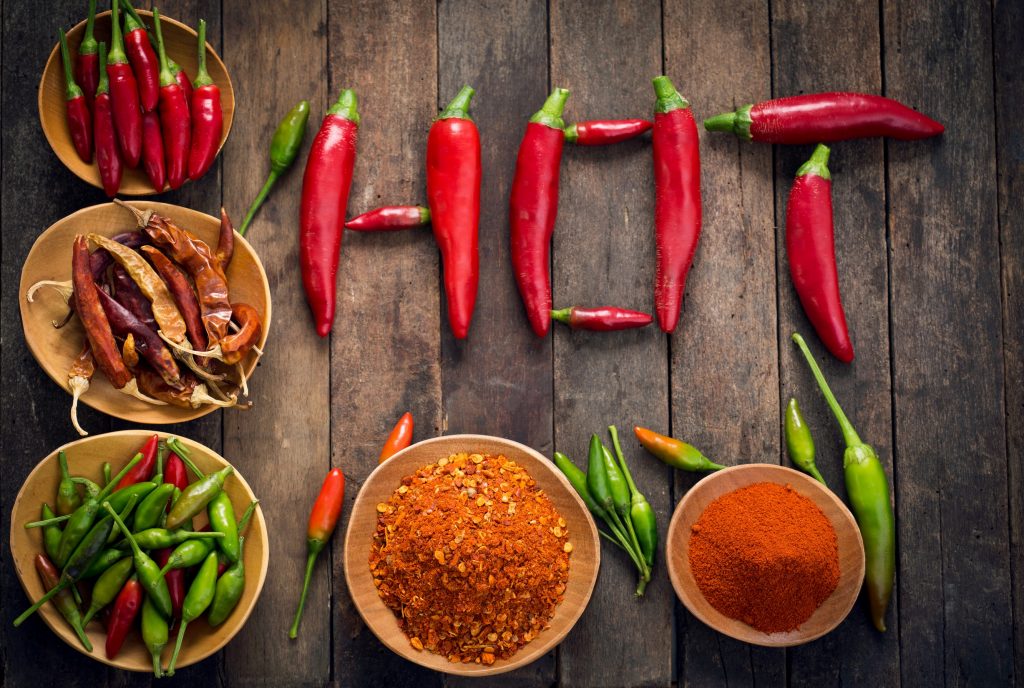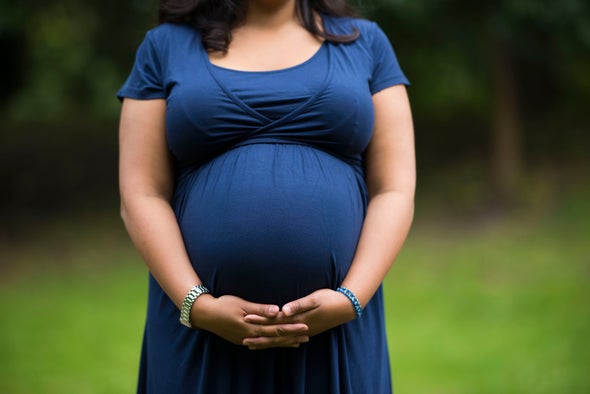Many food restrictions must be followed by pregnant women so that the fetus thrives, one of which is not being able to eat spicy food. Actually, can pregnant women eat spicy food? What is the actual medical view of this assumption? Here’s an explanation.

Can pregnant women eat spicy food?
In short, pregnant women can eat spicy food. Spicy food is safe for pregnant women and babies in the womb. Spicy foods are not specifically on the list of foods to avoid during pregnancy.
So far, there have been quite a few myths about the impact of pregnant women eating spicy food. For example, spicy food can harm pregnancy and the fetus and stimulate premature labour contractions.
Heartburn caused by spicy food and labour contractions occurs in two different areas. Heartburn due to spicy food can affect digestion, while heartburn due to labour occurs due to the baby’s birth canal opening.
In addition, there is no scientific evidence that spicy food can harm pregnant women and the baby in the womb or specifically cause other pregnancy problems.
Even so, the consumption of spicy food needs to be limited by anyone, especially if you are not used to eating spicy food and have poor digestive conditions.
Are there any benefits of eating spicy food for pregnant women?
Pregnant women are generally more susceptible to digestive disorders due to physiological and hormonal changes during pregnancy.
It may cause unpleasant effects on pregnant women after consuming spicy food, especially if spicy food irritates the digestive system even before you get pregnant.
But beyond that, pregnant women don’t need to be afraid of eating spicy food as long as it’s not excessive. Because besides being able to increase appetite, the consumption of spicy food also has benefits for pregnant women and babies.
Eating spicy food can improve your overall health. That is thanks to the capsaicin compound in chilli, which has anti-inflammatory properties.
In addition, consuming spicy food during pregnancy can broaden the future baby’s taste buds.
The taste buds of the fetus are fully formed when the gestational age enters the 15th week. As a result, the baby can also taste the food the mother consumes through the amniotic fluid.
Research shows that what pregnant women eat during pregnancy can also influence their baby’s preference for flavours later in life.
So tasting various flavours and spices, including spicy dishes, can help babies have a broader appetite and not hesitate to taste a variety of foods in the future.
The effects of spicy food need to be watched out for by pregnant women!

There is no particular harm from eating spicy foods in pregnant women. However, spicy food’s hot and sharp taste can cause some discomfort to pregnant women.
Physical and hormonal changes can also make you feel some of the effects of eating spicy food, including:
- Heartburn: Heartburn due to stomach acid reflux can be a disturbing symptom after pregnant women eat spicy food.
- Indigestion: Over time, a growing pregnancy can slow down the stomach’s emptying process. Spicy foods tend to cause digestive upsets such as diarrhoea in late pregnancy, so it’s best not to consume too much at this time.
- Nausea: Complaints of nausea during pregnancy are a classic symptom experienced by many pregnant women. If you experience this, spicy food will likely worsen your symptoms.
Tips on eating spicy food for pregnant women
Even though spicy food doesn’t hurt the fetus or pregnancy, pregnant women should still limit their consumption of spicy food. Here are some tips when pregnant women eat spicy food that pregnant women can follow:
- Reduce consumption of chillies or other spicy foods only once per day.
If eating spicy food makes your stomach uncomfortable (bloating or pain), you should avoid repeating the same meal for several days. - As much as possible, eat spicy food that you cook yourself so you can measure the amount of chilli you use.
- If you use packaged chilli (e.g. chilli powder or bottled sauce), ensure the product has not been damaged or expired.
- If you are going to try a new type of chilli or chilli powder, try it in small portions first.
Spicy food comes from chillies and plants with a sharp taste, such as wasabi and pepper. Most of these ingredients are safe if you don’t overdo them.
Some pregnant women can stand eating spicy food, and some are not strong enough to eat spicy food, even if only a little. Know your condition and consult a doctor if you experience health problems during pregnancy.




